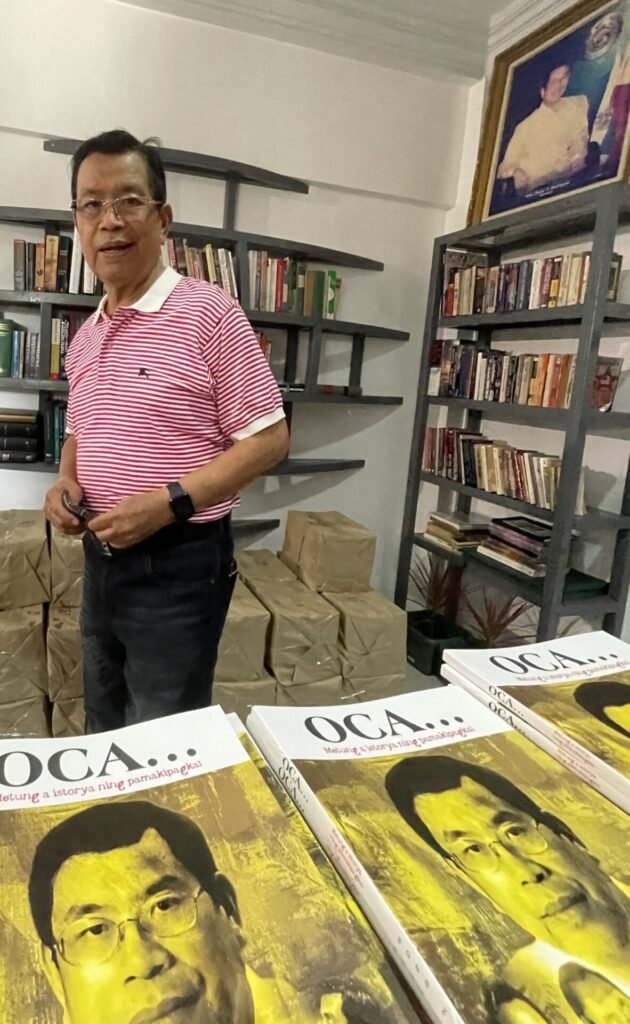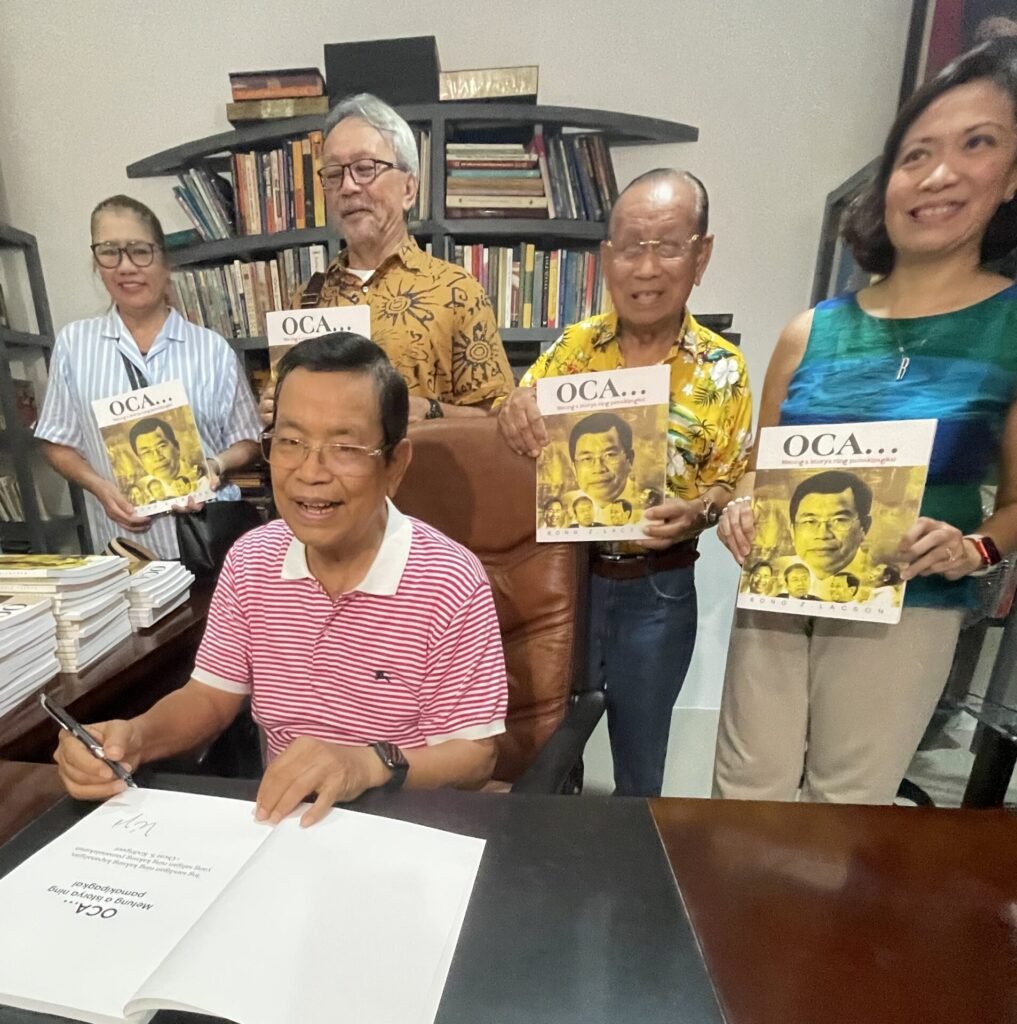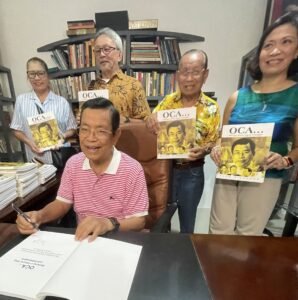
ARAYAT, Pampanga — As he saw it.
The dark side of martial rule and dictatorship by the late strongman Ferdinand Marcos has been retained in the 2023 Kapampangan translation of the 2005 biography of former Pampanga Rep. Oscar Rodriguez.
Launched on Saturday in a nature’s park here, the latest version of “About Oca (A Story of Struggle) remained faithful to the original book and its Filipino translation both by journalist Caesar “Bong” Lacson in 2005 and 2006, respectively.
Felix Garcia, a poet, said his Kapampangan edition did not attempt to revise the four chapters about those difficult days.
Several historians and activists have opposed attempts to revise martial law in Philippine history, especially in materials being used by young students.
The book was published a year after Rodriguez, 78, survived what he described as a medical miracle. A former mayor of the Pampanga capital of San Fernando, he said he wanted simple folks to be able to understand his life and his times.

All three editions were published by Sonia Soto, former administrator of the City of San Fernando.
Rodriguez also opened on Saturday in the same park a mini-library of his personal collection of books.
Rodriguez, as a working law student, joined the student movement, organized labor unions and provided free legal aid to farmers and activists.
The then Philippine Constabulary (PC) arrested him in December 1973 on suspicions of being the high-ranking “Nelson Fabros” or “Ka Jasmin” in the revolutionary movement.
Detained, interrogated and tortured in the First PC Zone (now Camp Olivas), Rodriguez endured for the cause of democracy. Once freed, he worked in the courts, took the bar, defended the poor and organized lawyers.
The 15 other chapters wove his life of poverty to his rise in local politics including his principled stance as chair of the justice committee in the impeachment of then President Joseph Estrada.
“When most congressmen, far wealthier than him, decided to wait, see and play safe, he opted to prosecute the most powerful man in the Philippines a few months away from election,” wrote his son-in-law lawyer Jose Andres Bautista.
Rodriguez supported the presidential bid of then Vice President Leni Robredo with whom he shared advocacy for good governance.



